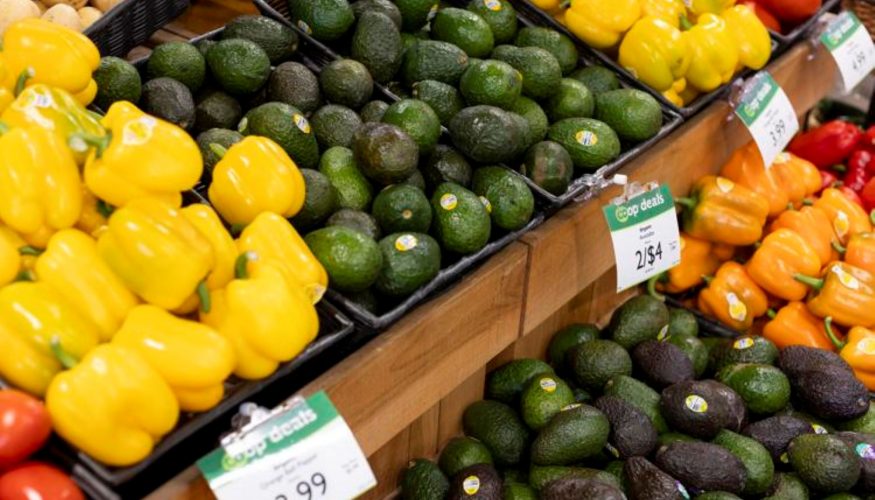Trump faces criticism in New England for tariffs; announces pause for Mexico, Canada

By Rick Green, The Keene Sentinel
A quick look in the produce section of the Monadnock Food Co-op on Monday showed at least two products — avocados and strawberries — that come from Mexico and would likely become more expensive under President Donald Trump’s threat to levy a 25 percent tariff on goods imported from that country.
His tariff, included in an executive order Saturday, was to go into effect Tuesday, but on Monday he called a one-month pause for further negotiations. He also called for a one-month pause on a 25 percent tariff he planned on goods from Canada. A 10 percent tariff on China was still due to go into effect Tuesday.
Michael Faber, general manager of the co-op in Keene, said his produce section often has fruit and vegetables from Mexico that are difficult to source from U.S. growers.
“Avocados are a great example,” he said. “There’s not a huge domestic supply of those.”
Organic avocados were marked on the shelf Monday as two for $4.
“I did bump into a shopper yesterday who had indicated that they were stocking up with the tariffs in mind,” Faber said. “We haven’t seen that on a large scale, but I do believe it is happening with some shoppers.”
A tariff is a tax on imported goods. A company that imports those goods pays the tariffs, but costs are often then passed down to consumers.
Trump has said the purpose of his 10 percent tariff on China and a 25 percent tariff on Mexico and Canada is to persuade those countries to help the U.S. cut down on illegal immigration and on the manufacturing and smuggling of fentanyl. Canada promised to retaliate with tariffs on U.S. goods.
The one-month pause with Mexico came after the president of that country, Claudia Sheinbaum, agreed to send 10,000 troops to the border to fight illegal drugs and to curb illegal migration.
U.S. Secretary of State Marco Rubio said this was a good step and added in a televised interview, “We want to have a good partnership with Mexico and they’ll always be our neighbor.”
The pause with Canada came after its prime minister, Justin Trudeau, promised to negotiate a border deal.
The New England Council, a regional business organization, put out a statement Monday criticizing the proposed tariffs, saying there would be widespread economic impact in the region because the three countries targeted are key trade partners.
“Consumers will see increased prices on everything from their energy bills, to groceries, to car repairs,” the statement said. “Tariffs on lumber will only exacerbate the shortage of affordable housing across the region.
“There will also be supply chain disruptions for a wide array of innovative businesses in our region — from life sciences, to clean energy, to technology.”
State Sen. Donovan Fenton, whose family owns car dealerships in Keene and Swanzey, said in a social media post that he met recently with Canadian Consulate officials to discuss tariffs.
“Canada is New Hampshire’s number one trading partner, as well as for 36 other states,” Fenton, D-Keene, said in the post.
“Our state exports $1.4 billion in goods to Canada annually. Notably, half of the gasoline for our cars comes from Canada, making them our largest energy importer.
“For New Hampshire residents, these tariffs could lead to an increase of up to 70 cents per gallon at the pump. While governments may remain unaffected, it’s the average citizens who will bear the brunt of these policies.”
New Hampshire’s congressional delegation, Sens. Jeanne Shaheen, Maggie Hassan and Reps. Chris Pappas and Maggie Goodlander, sent a letter to Trump on Friday in opposition to his tariff plans.
“Families will face higher prices at the pump and lose more of their hard-earned income to home heating bills during the coldest months of the year if you create a new energy tax in the form of tariffs on oil and petroleum products from Canada,” the letter states.
“These taxes would raise families’ grocery bills, too. The type of broad tariffs you’ve proposed could raise food costs by $200 per year for the average household. That’s because the U.S. imports 38 percent of our fresh vegetables, 60 percent of our fresh fruit, and more than 99 percent of our coffee.”